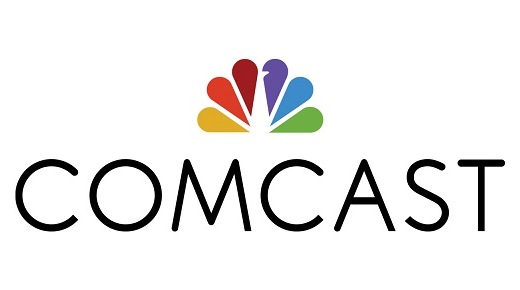Media
What Happens If Government Kills Comcast Deal for Time Warner? Nothing
Published:
Last Updated:
What happens if the federal government kills the proposed combination of Time Warner Cable Inc. (NYSE: TWC) and Comcast Corp. (NASDAQ: CMCSA)? Nothing. Cable service will remain poor. Customer satisfaction with cable companies will remain awful. Attempts to raise rates and cut cable speeds will continue. Source: courtesy of Comcast
Source: courtesy of Comcast
Consumer groups and much of the media expect what many call a possible monopoly to raise rates, and perhaps degrade services to raise margins. The speculation is overdone for now. Even if the marriage occurs, the government might insist the new company divest a large number of subscribers to other cable companies. The new balance among broadband and entertainment suppliers is hardly set.
The details of the transaction are:
The agreement is a friendly, stock-for-stock transaction in which Comcast will acquire 100 percent of Time Warner Cable’s 284.9 million shares outstanding for shares of CMCSA amounting to approximately $45.2 billion in equity value. Each Time Warner Cable share will be exchanged for 2.875 shares of CMCSA, equal to Time Warner Cable shareholders owning approximately 23 percent of Comcast’s common stock, with a value to Time Warner Cable shareholders of approximately $158.82 per share based on the last closing price of Comcast shares. The transaction will generate approximately $1.5 billion in operating efficiencies and will be accretive to Comcast’s free cash flow per share while preserving balance sheet strength. The merger will also be tax free to Time Warner Cable shareholders.
And:
This transaction will create a leading technology and innovation company, differentiated by its ability to deliver ground-breaking products on a superior network while leveraging a national platform to create operating efficiencies and economies of scale.
Those economies of scale and innovation may be good for the new company, but the two firms that will create it did not make much of a case that it will be good for anyone else. There is a great deal of guessing that the new giant will make it more difficult for rivals like Apple Inc. (NASDAQ: AAPL) and Netflix Inc. (NASDAQ: NFLX) to deliver their services, perhaps by charging them for the bandwidth their video services take up. However, it is hard to see the federal government allowing that to happen, if the prowess of regulation means anything at all.
One theory against the merger is that consumers benefit from the largest number possible of fiber, cable and satellite broadband and TV suppliers. Much of the evidence is to the contrary. These suppliers have been charged repeatedly with cutting broadband speeds and raising prices for service. That trend will not get worse, or likely better, if the Comcast deal for Time Warner Cable goes through. Poor service and high fees have been hallmarks of cable and satellite TV for decades.
If the transition is blocked, nothing will happen. Not only will there be no monopoly, there will be no improvement in service, no lower rates for content, no better customer service. The industry that delivers broadband and TV has never been customer friendly. And it will not become so, no matter what business combinations take place — today or in the future.
A financial advisor can help you understand the advantages and disadvantages of investment properties. Finding a qualified financial advisor doesn’t have to be hard. SmartAsset’s free tool matches you with up to three financial advisors who serve your area, and you can interview your advisor matches at no cost to decide which one is right for you. If you’re ready to find an advisor who can help you achieve your financial goals, get started now.
Investing in real estate can diversify your portfolio. But expanding your horizons may add additional costs. If you’re an investor looking to minimize expenses, consider checking out online brokerages. They often offer low investment fees, helping you maximize your profit.
Thank you for reading! Have some feedback for us?
Contact the 24/7 Wall St. editorial team.